Filter News
Area of Research
News Topics
- (-) Biotechnology (6)
- (-) Neutron Science (1)
- 3-D Printing/Advanced Manufacturing (2)
- Artificial Intelligence (5)
- Big Data (7)
- Bioenergy (26)
- Biology (42)
- Biomedical (9)
- Chemical Sciences (3)
- Clean Water (8)
- Climate Change (23)
- Composites (1)
- Computer Science (11)
- Coronavirus (5)
- Decarbonization (15)
- Energy Storage (2)
- Environment (57)
- Exascale Computing (4)
- Frontier (3)
- High-Performance Computing (12)
- Hydropower (5)
- Machine Learning (5)
- Materials (1)
- Materials Science (2)
- Mathematics (3)
- Mercury (6)
- Microscopy (7)
- Nanotechnology (2)
- National Security (2)
- Net Zero (1)
- Physics (1)
- Polymers (1)
- Renewable Energy (1)
- Security (1)
- Simulation (9)
- Summit (7)
- Sustainable Energy (17)
Media Contacts
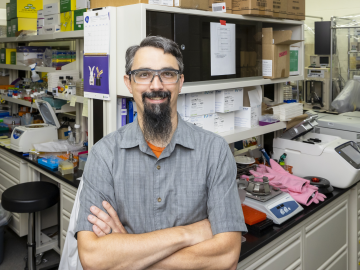
Scientists working on a solution for plastic waste have developed a two-step chemical and biological process to break down and upcycle mixed plastics into valuable bioproducts.
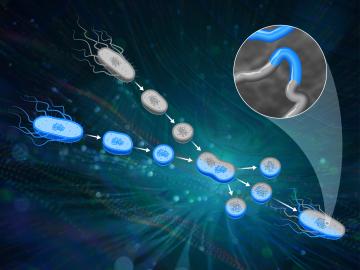
ORNL scientists had a problem mapping the genomes of bacteria to better understand the origins of their physical traits and improve their function for bioenergy production.
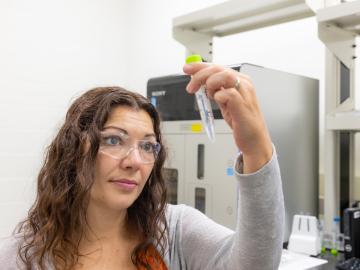
Carrie Eckert applies her skills as a synthetic biologist at ORNL to turn microorganisms into tiny factories that produce a variety of valuable fuels, chemicals and materials for the growing bioeconomy.
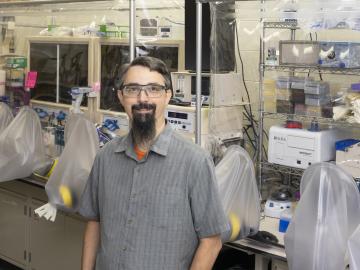
As a metabolic engineer at Oak Ridge National Laboratory, Adam Guss modifies microbes to perform the diverse processes needed to make sustainable biofuels and bioproducts.
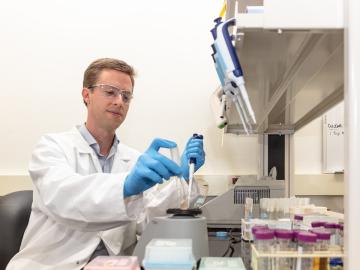
In a step toward increasing the cost-effectiveness of renewable biofuels and bioproducts, scientists at ORNL discovered a microbial enzyme that degrades tough-to-break bonds in lignin, a waste product of biorefineries.
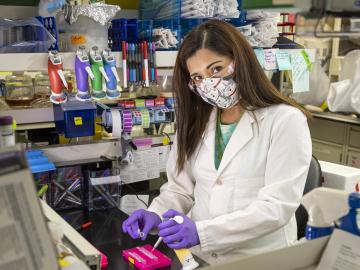
From soda bottles to car bumpers to piping, electronics, and packaging, plastics have become a ubiquitous part of our lives.
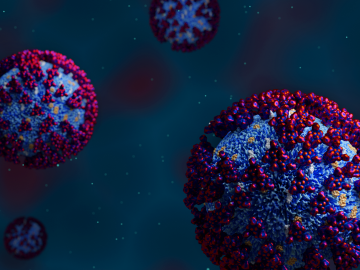
In the race to identify solutions to the COVID-19 pandemic, researchers at the Department of Energy’s Oak Ridge National Laboratory are joining the fight by applying expertise in computational science, advanced manufacturing, data science and neutron science.




